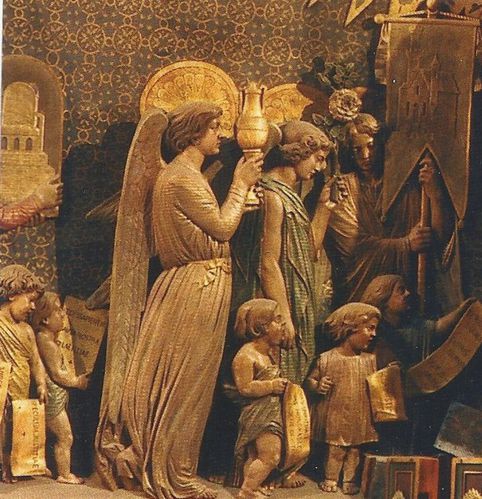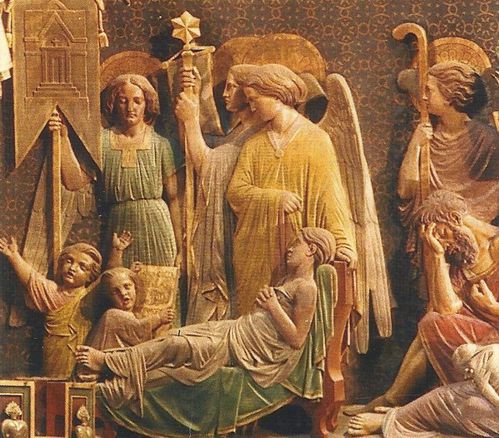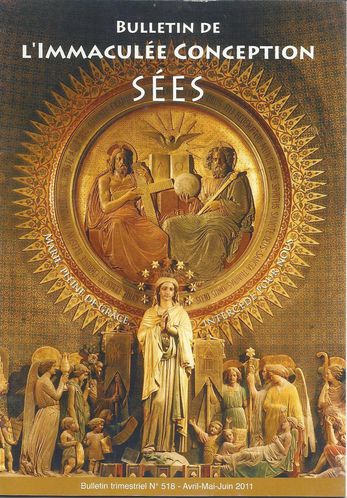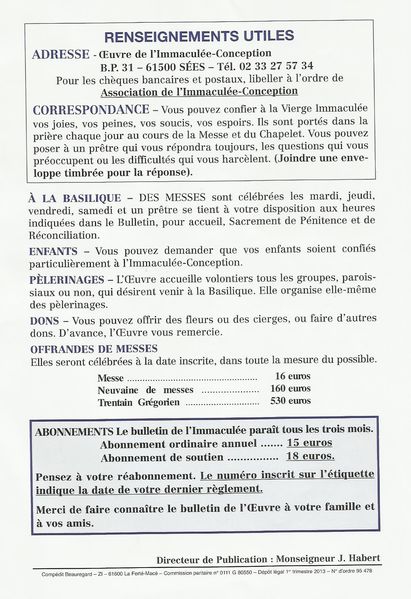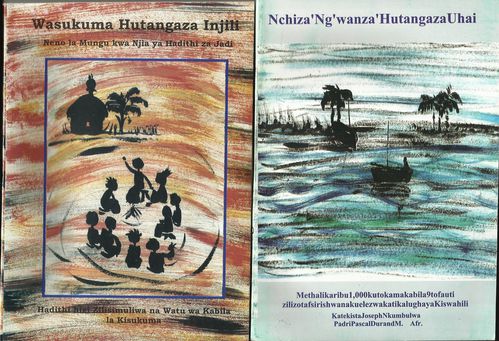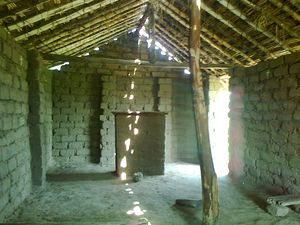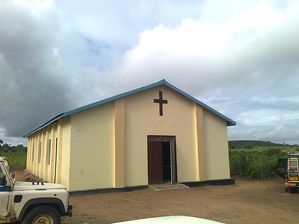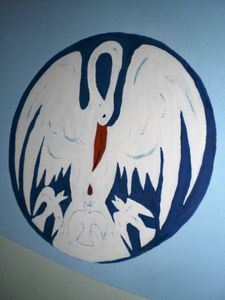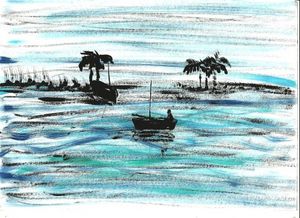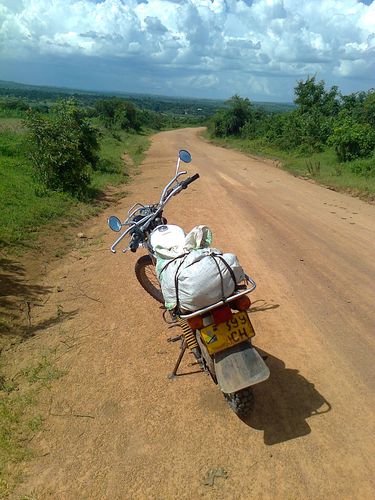Here is the translation of an article published in a local newspaper called ‘Orne Combattante’, on February 14th 2013, without the cuts imposed by the format of the journal.
Orne Combattante: How have you decided to go for a mission in Tanzania? Why this choice? What is your itinerary?
Pascal: Some readers of the local newspaper l’Orne Combattante must already know me as I have already been the object of some articles concerning my activities. After a brief professional period in Paris (I was working for France Telecom), I entered in 1990 within the congregation of the Missionaries of Africa, that is often called ‘White Fathers’ because of their traditional religious outfits. Following two preparatory years in Lille (France), I left my country in 1992 in order to pursue my missionary training. This later training took place within three different African countries: Zambia (1992-1993), Tanzania (1993-1995) and Kenya (1995-1999). Following my ordination in the Cathedral of Sées (France), I have worked within different rural parishes in Tanzania. These are parishes within which the Church benefits a lot in terms of youth dynamism and growth. However one of these parishes was the parish of Wete, of the island of Pemba (itself part of the Zanzibar archipelago). This is a parish whereby there is only one Christian for one thousand Muslims. In this place, the physiognomy of my apostolate was greatly different than the one of the other parishes in which I have worked. It was most of all a matter of encountering the willing non-Muslims and foster respect and mutual understanding. Then, after two years in Europe for some studies (Ireland and Great-Britain between 2005 and 2007), I have come back within more traditional Tanzanian rural parishes, within the North-Western part of Tanzania. My present parish serves about thirty villages, within which the Catholic population is thought to be somewhere between 10 and 20% of the overall population. We estimate the total Catholic population to be between 7 and 8 thousand faithful.
What has lead me to this choice? It is very difficult to say. Here are a few determining elements that I could mention: a family which was well disposed to welcome this sort of commitment (I was not the first missionary priest of the family, as I had a great-uncle in Congo-Brazaville, who died in 1988), and I believe a concern that I always had and which is to regulate my life with what would God could ask from me, a concern which was sustained through prayer and Church’s people. Indeed, I met some people who have succeeded through their own examples to express the value and the benefit of the commitment, of service through faith.
Missionaries of Africa commit themselves to serve Africa. What was attracting me initially I suppose was the marginal position that is the one occupied by the African continent, till today, rather than an emotional attraction. To serve Africa is very demanding and I wanted to express some radicalism within my commitment, and in the same time to give myself to the service of the poorest. I did mention “Tanzania” among my preferences of affectation wherever this was possible to do, and I am very pleased that I have been heard. I suppose that I did not want to go to an old French colony and besides, the example of political stability in Tanzania, within a greater region which is rather chaotic, had always fascinated me.
O.C.: As you are for four years there, what is your comment on this experience ? On the country ?
Pascal: (Important correction: I am in Kasamwa for four years, but in Africa for almost 20 years). I sometimes say that the reasons for which I stay faithful to my commitment are not the same than those who brought me there. My person is now entirely shaped by this whole experience in Africa, and I am much more aware of the inextricabilities and complexities within which is placed any human person. This unavoidably leads me towards modesty and discourages any judgment on people and situations. My service is first of all a service within the Church: to accompany those who like, to live always more dignified life, with respect and unity with the plan of Love that God Himself has upon him and her, and upon everybody. The ultimate goal is always of a spiritual order.
Tanzania is now facing a difficult transition. The first thirty years after the independence have built solid political foundations in terms of national unity and pacification. Tanzania remains a nation with about 120 ethnic groups! However, the economy did not follow. The increasing insolvability pushed some international organisations such as IMF and the World Bank to compel the nation to change its economical policy. Within the 1990’s, a more capitalistic system has been inaugurated. Results have shown some delay before appearing. Though there is a good economic growth within Tanzania, it is very badly shared because of a number of elements, and most important of all, because of corruption.
Today, we face new challenges: the religious radicalisation and the Islamic extremism (Muslims are one third of the nation’s overall population), the increasing power of foreign instances on minerals and land property, the chaotic influence of some neighbouring countries which are in war situations (Congo, the Arab awakening, the anarchy in Somalia, the social instabilities in Kenya), the social instability due to a youth population which has no work nor dignity, to such numbers that it is now received as a threat, and corruption. The presidential elections foreseen in 2015 will be a dangerous test for the social stability of this country, and not every analyst is optimistic in this respect.
O.C.: Have you been affected by the fires which have destroyed churches ?
Pascal: Not really, the area in which I live is peaceful. But criminal activities against the churches and its people are worrying signs of an increasing presence of a radical form of Islam in Tanzania. A few days before Christmas, all the different churches in Tanzania published a text which courageously denounce this evolution, and also the lack of appropriate response from the government. The Tanzanian president is Muslim, and he is easily suspected to implicitly tolerate by his passivity to some of the radical islamic propaganda.
O.C. Is this still going on ? What is the situation now?
Pascal : There was a priest attacked with a gun during Christmas time on the island of Zanzibar, and we do not really know what would have motivated this act. Perhaps it was banditry. Besides this violence, we witness to some more and more aggressive propaganda everywhere in the country. The situation is not as much dramatic as elsewhere, as in Northern Nigeria or in Northern Mali, but it is a cause of worry for a great number of observers.
I read on your website that you have sometimes organized some collections. What are you activities in Tanzania?
The collections that we are organisings in the parish are most of all for the needs and life of the local Church. We are also asking the parishioners to contribute for the building of the main parish Church which is under way, as well as for other material needs. This was especially difficult in 2012 as harvest (which is the main income for most of our faithful) have been very poor. In fact, we have been facing two consecutive poor years for harvests. Sometimes, some funds provided by benefactor and friendly organizations complete the work initiated by our faithful.
O.C. On your website, you mention a lawyer who is helping you to settle problems related to corruption. You also mention witchcraft accusations. Could you describe what is the situation in Tanzania ? What are the main difficulties you are facing, and that you try to solve for your faithful ?
Pascal : Indeed, we have invited a lawyer to come in order to advise our parishioners about common matters. Witchcraft accusations are part of it. We have regularly some people who are freely accused to have taken part in witchcraft activities. But they are accusations made after the event of somebody dying or facing a painful situation. These kinds of accusations tend to offer ready-made explanations of misfortunes which are not easily bearable in themselves, and consequently to release the anguish which is linked to it. For us, it is most of all a matter of accompanying people in situations of danger, to defend their rights and to raise the awareness of the population through teachings.
O.C. : What is your souvenir of Tinchebray?
Pascal: I regret the fact that now, churches are closed or empty. Since the revolution, Saint Rémy is nothing more than a window-glass, and the chapel of the prison is but a common room. But now, the medieval Church of Notre Dame des Montier is closed to the public, expect in rare occasions, but my grand-mother still prayed in this Church. The very survival of the chapel Sainte Marie is very compromised. Saint Pierre is now empty (but it has always been open during my homeleaves, as well as the chapel of the Miséricorde, in which I appreciate greatly to pray and say mass whenever I want). A religious congregation whose origin is in Tinchebray has died a few years ago, in silence. Meanwhile, I have seen in Tinchebray the amazing development of supermarkets and street sales, always greater, as during the feast of Saint Luc. I cannot prevent myself to believe that those two phenomenons are somehow linked: benefits that religious practice was offering, in terms of happiness or serenity are now looked after in a very confused way within material goods, always more varied, accessible and vain. There is also the ambiguity of Christmas illuminations for our countryside churches: on one hand, I do appreciate the great efforts established to valorize the religious patrimony, but on the other hand, it seems to me that they are only another way to reflect the increasing material culture of our society: it is no longer necessary to enter! The place of attention has shifted, and it is no longer the inside which is dignifying and sanctifying, but the outside, with its entire power and blinding sufficiency.
O.C. Do you have any project ? (new missions etc.).
Pascal : My first project is to strengthen the christian communities around Kasamwa, which is a parish which has been opened in 2005 only. I am in charge of a parish for the first time since April 2012, and it is not so easy. But I have good collaborators. We will soon have different ways to celebrate ‘the year of the faith’ which has been desired by our Pope Benedict XVI. We do hope to be able to place a roof on our new Church this year (the cost of the roof is being estimated to the equivalent of 25,000 Euros). Besides, it is asked of me to reflect on some social problems in order to contribute to a forum which will take place next June. It is not the first time that I am offering this service, but it is doubtful whether I will have enough time and availability this time. My projects are short-terms projects. Then, I expect to come back in Normandy this year, between June and August 2013.
O.C. What is your proverb book about ?
Pascal: It is a book which has been printed in 2012, and it is first of all in order to save and to give access to the greater number of Tanzanian people (therefore in Swahili), various collections of proverbs established either by myself or by missionaries who preceded me. This book contains almost 1000 local proverbs, originating from 9 different ethnic groups, but all of which are located within a same ‘country’, the one where I now reside, the southern shore of the Lake Victoria, around the city of Mwanza, the second one of the nation. This book has also been translated in English and into French, but only the Swahili version has been printing so that to reduce the cost. Some of these proverbs are available on my website: www.pascalbcdeng.over-blog.org



